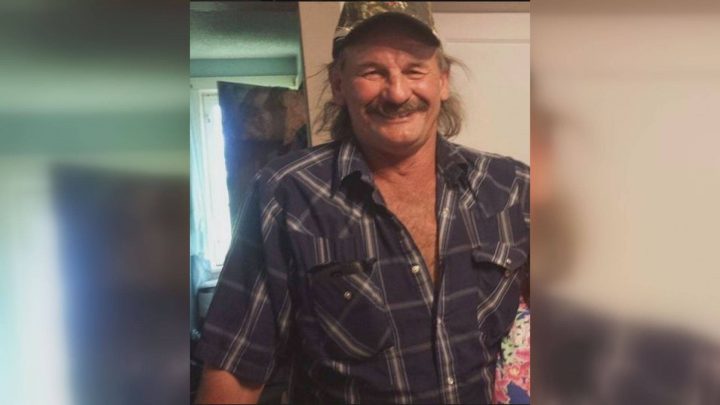A Saskatchewan man found guilty of first degree murder of Carol King had his appeal dismissed on Thursday.

Joseph “David” Caissie was sentenced to life in prison in January 2019 with no chance of parole for 25 years for first-degree murder and offering an indignity to a body.
King was killed in August 2011 outside of Herschel, Sask.
Caissie was the target of an elaborate Mr. Big sting in 2016 — a technique developed by Canadian law enforcement in which undercover officers pose as criminals to get a suspect to confess to a prior crime or crimes while promising a lucrative life with their fictional gang or criminal organization.
Undercover agents ran the operation from Jan. 20, 2016, to July 19, 2016, and had 49 encounters with Caissie.
Caissie’s lawyer filed an appeal of Justice Richard Danyliuk’s decision in February 2019, claiming he made a number of mistakes including allowing Mr. Big statements to be allowed as evidence.
The appeal decision said Caissie’s convictions are based primarily on his confessions that he killed King, which were derived from the Mr. Big operation.
- Gas station clerk stabbed several times during violent attack at Ultramar in Montreal
- Canada’s most wanted list: Toronto suspect in fatal shooting at No. 1
- Man acquitted in Tina Fontaine murder found dead, says her aunt
- Canadians should expect politicians to support right to bail, Virani’s office says
King went missing on August 6, 2011 and her car was found later partly submerged in a slough near Herschel.
When police removed the car from slough, the driver and passenger side windows were rolled fully down, the keys were in the ignition in the “on” position, the gearshift was in the “drive” position and windshield washer wiper fluid jug was jammed between the brake pedal and the accelerator pedal, pushing the accelerator pedal down.
Once they found the car, police tried to determine if Caissie was involved in Kings disappearance and obtained a search warrant for his property as well as installed a tracking device on his truck.
King’s body was found on August 27, 2011 on an abandoned farmyard in the Herschel area.
Police interviewed Caissie a number of times and he consistently denied involvement in her death during the interviews.
The decision said while the investigation yielded some information, there was not enough evidence to lay any charges against Caissie at the time.
King’s death became a cold case by 2012 and in 2015 police decided to conduct a Mr. Big operation believing Caissie was involved in King’s death.
According to the appeal courts decision, Caissie made six confessions to undercover officers involved in the sting, including taking part in a re-enactment of the killing.
Caissie argued evidence garnered from the Mr. Big operation was inadmissible and said that any admissions he made were either false or unreliable.
The appeal decision said Danyliuk found Caissie’s confessions “accurately described mundane details of the crime, which he would likely not have known had he not committed it.”
He concluded that the crown met “the onus of demonstrating the reliability of the utterance of Mr. Caissie,” and admitted the confessions into evidence on the trial.
During his trial, Caissie submitted specific examples that he said cast doubt on the reliability of his confessions, including that he denied putting the windshield wiper fluid jug where it was found.
“The judge noted that this was not an element of the offence charged and the Crown was not required to explain how the jug ended up where it was or the reason for the disconnect in order to obtain a conviction,” the appeal decision read.
Caissie’s appeal raised the issues of whether or not the Danyliuk erred by admitting the confessions and whether or not he also erred by misapprehending evidence related to the location of King’s body and the jug.
Caissie argued that he was not able to identify the exact place where he had left the body and only gave vague assertions of where it was.
The appeal judges found that there was no merit to this argument.
“The fact the body was found somewhere in the abandoned farmyard was known to the public. However, the precise location at the site was not. Mr. Caissie was able to give such more accurate location during the re-enactment,” the appeal decision read.
“In short, his description of where he put the body was not vague but rather relatively specific given the layout of the farmyard, the passage of time and the change in the landscape.”
The appeal court concluded that the trial judge did not err by failing to consider evidence relevant to these issues or make a mistake as to the substance of that evidence or fail to give proper effect to such evidence.
— with files from Global News




Comments